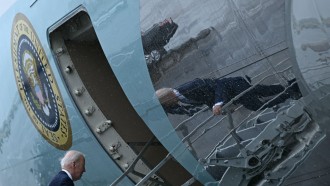A new Boeing study claims that heat can kill 99.9% of coronavirus particles that are latching on planes. The giant airline company said that using thermal disinfection for three hours could reduce COVID-19 on the aircraft.
Also Read: FACT CHECK: Does Pfizer's COVID-19 Vaccine Have Microchips-Here are the Ingredients
Boeing collaborated with the University of Arizona's scientists and researchers to find ways on how to kill the novel coronavirus on the cockpit's surfaces. The experts claim that heat is a very efficient way to kill the viral disease that is infecting millions of people across the globe.
The new study brings hope to people who want to travel during the ongoing health crisis. According to KOLD News 13's latest report, the new study in Tucson shows that air travel can now be safer.
How effective is thermal disinfection?
Dr. Charles Gerba, the study's leading researcher, said that the new method no longer needs any chemicals. This is really a great innovation since it'll help those people who are sensitive to chemical exposures.
All the airline staff needs to do is heat up the cabin for three hours and the passengers are good to go. The study revealed promising results after using actual parts from the flight deck.
They brought the parts in a lab at the University of Arizona to further observe the efficiency of the new disinfection method. The new research showed that the virus was reduced by more than 99.9% at temperatures of 104 degrees Fahrenheit and 120 degrees Fahrenheit.
"We're basically cooking the virus," said Dr. Gerba via Fox News.
"Thermal disinfection is one of the oldest ways to kill disease-causing microorganisms. It's used by microbiologists in our laboratory every day," he added.
Will the planes melt?
Researchers explained that the given temperatures won't have any effect on the planes since flight decks are designed to withstand temperatures as high as 160 degrees Fahrenheit.
The new study can give hope to the airline industry since it is one of the most affected travel industries when the pandemic started. Governments across the world are still implementing travel restrictions since vaccines are not yet distributed.
On the other hand, German scientists previously studied the chances of catching the deadly virus on a plane. They said that the odds are low as long as the staff conducts proper sanitation and precautionary.
For more news updates about COVID-19, always keep your tabs open here at TechTimes.
Related Article: Pfizer COVID Vaccine Vial Includes Extra Dose,NHS to Administer Free Jabs to Additional 160,000 People
This article is owned by TechTimes.
Written by: Giuliano de Leon.








